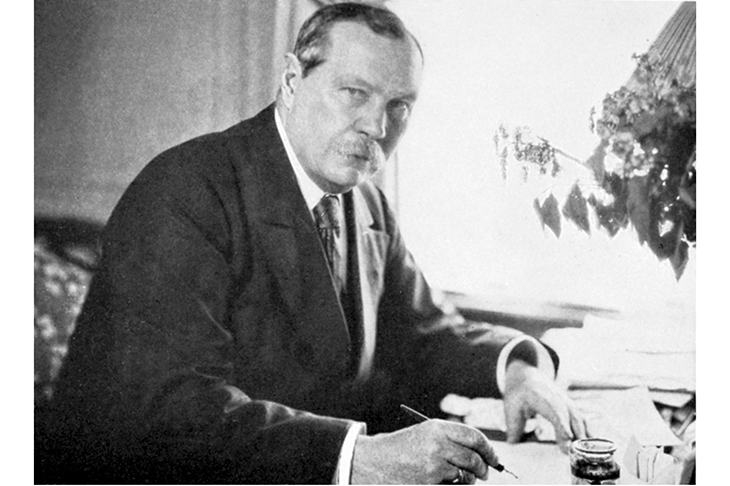It has been described as Britain’s Dreyfus Affair — the wrongful imprisonment in 1903 of a half-Indian solicitor George Edalji in the Midlands and the refusal of the authorities to pay him compensation, even though he was later pardoned.
In a case tainted by racism, class prejudice and plain stupidity, Edalji was accused of mutilating horses, sheep and cattle, and then forging letters to implicate others, thus creating mayhem in the village of Great Wyrley where he lived, in a mining district in Staffordshire. His cause was taken up by a home-grown Zola in the form of Sir Arthur Conan Doyle who was happy to replicate the investigatory skills of his famous fictional detective, Sherlock Holmes.
With the help of insights into the Parsee background of Edalji’s family in India, and recently discovered papers about the police response to the affair, Shrabani Basu has sought to breathe new life into a story which has had many airings but never quite caught the public imagination, certainly not in J’Accuse terms. (The closest contender was Julian Barnes’s novel Arthur and George in 2005.)
A journalist by training, Basu writes pithily and engagingly, with an eye for striking detail. She clearly thought Edalji’s woeful treatment worth revisiting in the wake of recent debate about race and empire, though her story is really more about class and rural petty-mindedness. But she gives a good account of what it was like for someone with a dark skin to be mired in a toxic environment sullied by some very unsavoury people.
Much of the action had already taken place before Conan Doyle became involved in late 1906. The deeper background is that George Edalji’s father Shapurji was a Parsee who had converted to Anglicanism in Bombay, joined the priesthood, and studied in England, where he married a local girl, Charlotte, who bore him three children.








Comments
Join the debate for just £1 a month
Be part of the conversation with other Spectator readers by getting your first three months for £3.
UNLOCK ACCESS Just £1 a monthAlready a subscriber? Log in